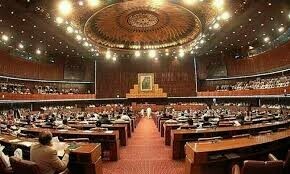
ALBANY: A British bank schemed with the Iranian government to launder $250 billion from 2001 to 2007, leaving the United States' financial system “vulnerable to terrorists,” New York's financial regulator charged Monday.
In a statement released Monday night, Standard Chartered Bank said it “strongly rejects” and “contests” the New York regulators’ portrayal of its transactions with Iranian banks.
It said it voluntarily began reviewing the transactions since 2010 with US regulators and the findings don’t match the accusations leveled at the bank Monday.
State Financial Services Superintendent Benjamin Lawsky signed an order that requires London-based Standard Chartered Bank to answer his questions following an investigation into “wire stripping,” the practice of removing crucial identifiers in financial transactions.
The state agency called the bank a rogue institution and quoted one of its executives as saying: “You (expletive) Americans. Who are you to tell us, the rest of the world, that we’re not going to deal with Iranians.”
The bank conspired with its Iranian clients to route nearly 60,000 different US dollar payments through Standard Chartered’s New York branch “after first stripping information from wire transfer messages used to identify sanctioned countries, individuals and entities,” according to agency’s order.
The order said the transactions provided the bank with millions of dollars in fees at a time when such trade was restricted.
“The group does not believe the order issued by the DFS presents a full and accurate picture of the facts,” the bank said Monday night in a fuller response to Lawsky’s order.
“The analysis, that the group shared with all the US agencies, demonstrates that throughout the period the group acted to comply, and overwhelmingly did comply, with US sanctions and the regulations.”
The statement said “well over 99.9 per cent” of the questioned transactions with Iran complied with all regulations.
The few transactions that didn’t amounted to just $14 million, according to the bank.
The bank said none of its Iranian payments was on behalf of any designated terrorist group.
“The group takes its responsibilities very seriously, and seeks to comply at all times with the relevant laws and regulations,” the bank stated.
“It is in this spirit we initiated this review and have engaged with the US agencies.”
The bank also said it had no prior notice of the order.
A government official said Monday that the FBI's New York office has been investigating the matter to determine if criminal charges should be brought.
The official wasn’t authorized to discuss the probe and spoke to The Associated Press on condition of anonymity.
An FBI spokesman declined to comment.
The state agency said the bank's actions “left the US financial system vulnerable to terrorists, weapons dealers, drug kingpins and corrupt regimes and deprived law enforcement investigators of crucial information used to track all manner of criminal activity.”
The bank stripped information from the money transfers that is used to identify countries being sanctioned and replaced it with false entries or returned it to Iran for “wire stripping” and resubmission, according to the order.
The bank “developed various ploys that were all designed to generate a new payment message for the New York branch that was devoid of any reference to Iranian clients,” according to the order.
The order also identifies an October 2006 “panicked message” from a London group executive director who worried the transactions could lead to “very serious or even catastrophic reputational damage to the group.”
If proven, the scheme would violate state money-laundering laws. The order also accuses the bank of falsifying business records, obstructing governmental administration, failing to report misconduct to the state quickly, evading federal sanctions and other illegal acts.
Between 2004 and 2007, about half the period covered by the order, the department claims Standard Chartered hid from and lied about its Iranian transactions to the Federal Reserve Bank of New York.
Before 2008, banks were allowed to transact some business with Iran, but only with full reporting and disclosure, the order states.
In 2008, the US Treasury Department stopped those transactions because it suspected they helped pay for Iran to develop nuclear weapons and finance terrorist groups including Hamas and Hezbollah.
The order states the bank has to provide information and answer to its questions to determine if any of its funding aided the groups or Iran’s nuclear program.
The order said the bank operates in 70 markets as a leading international banker with clients who are among the largest corporations and financial institutions in the world.
The order notes the bank states in its own documents that its success is because of its “moral compass” and a core value of “openness” that is based on “always trying to do the right thing.”












































Dear visitor, the comments section is undergoing an overhaul and will return soon.